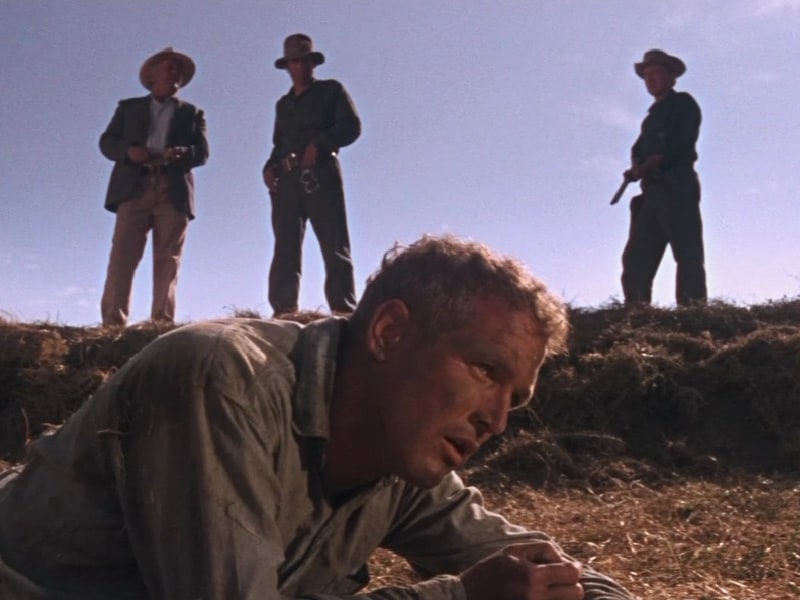
Paul Newman was no stranger to playing the outcast by 1967. With The Long, Hot Summer, The Hustler, and The Young Philadelphians under his belt, audiences were used to him being dealt the shorthand. His struggles never put a damper on his good looks until the torture he’d go through in perhaps his most famous role in Cool Hand Luke.
50 years after its release, Cool Hand Luke may be remembered for its famous quotes or that hilarious egg scene, but that isn’t why audiences continue to revisit it today. Newman’s performance as Luke, a petty criminal unsure of his place in the world, gives the film the depth a movie needs to have a legacy.
The script originated from real life convict, Donn Pearce. He wrote a novel with the same title about his life serving on a southern chain gang. The rights for the story were obtained by producer Gordon Caroll, but he believed Pearce’s lack of experience in Hollywood wouldn’t make for a good script. Frank Pierson was brought on to write the screenplay for the film that would outshine the novel it was based on.
Despite deviation from Pearce’s vision, Cool Hand Luke derives most of its power from the anti-establishment tone that is present in Pearce’s novel. It opens on Luke unscrewing the heads of parking meters while drunk. He laughs at the officer who orders his arrest, unphased by the consequences of what seems like a prank. He ends up at a chain gang with the likes of men who have committed far worse crimes like assault, yet immediately the guards deem him as a hard case. Luke takes everything dished out at him from the very beginning with a smirky grin.
His unamused calmness agitates not only the captain and other “bosses,” but the inmates as well. Upon his arrival, Luke even challenges the rules orchestrated by gang tough guy Dragline (George Kennedy). This results in a fight scene impossible to watch without grimacing. Lukes takes punch after punch as the guards look on, uninterested in saving him from a beating. A perfect example of Luke resilience throughout the film, his inability to bow out of the fight earns his respect from the other inmates.
Luke continues to defy authority throughout the film, but his actions are not without heart. In a sad scene with his dying mother, he admits he could never live a normal life. The girl he wanted to marry ran off and he apologizes to his mother for being a burden on her shoulders. Her death affects him deeply, pushing him to what the guards expected him to do all along–escape.
Cool Hand Luke uses the authoritative characters to look at cast an anti-establishment theme unlike most films of its kind. They are not directly representative to the authority figures the film may have been commenting on during the Vietnam War, but they evoke that image. The ruthlessness and unsympathetic nature of the Captain (Strother Martin) and his “bosses” Paul (Luke Askew), Godfrey (Morgan Woodward), and Blind Dick (Richard Davalos) could certainly be connected to the impressions of the military officials at the time. Their sadistic torture of Luke and the other inmates is very similar to depictions of Vietnam War officials, like in Full Metal Jacket (1987). When contrasted with Luke, these characters feel like an impossible evil force to beat.
The film represents feelings towards authority, whether it be the government or reigning Hollywood studios, at the time it was made, but in a way that isn’t overtly of its time. The story can resonate during any time because it’s not grounded in events directly connected with the 60s. The time period has very little to do with the story. Unlike Easy Rider, this film doesn’t contain the aura of the decade while still using the same sentiment. It makes for a more accessible and relatable story that 50 years later, audiences can identify with.
Related Topics: Anniversary, Cool Hand Luke, History

